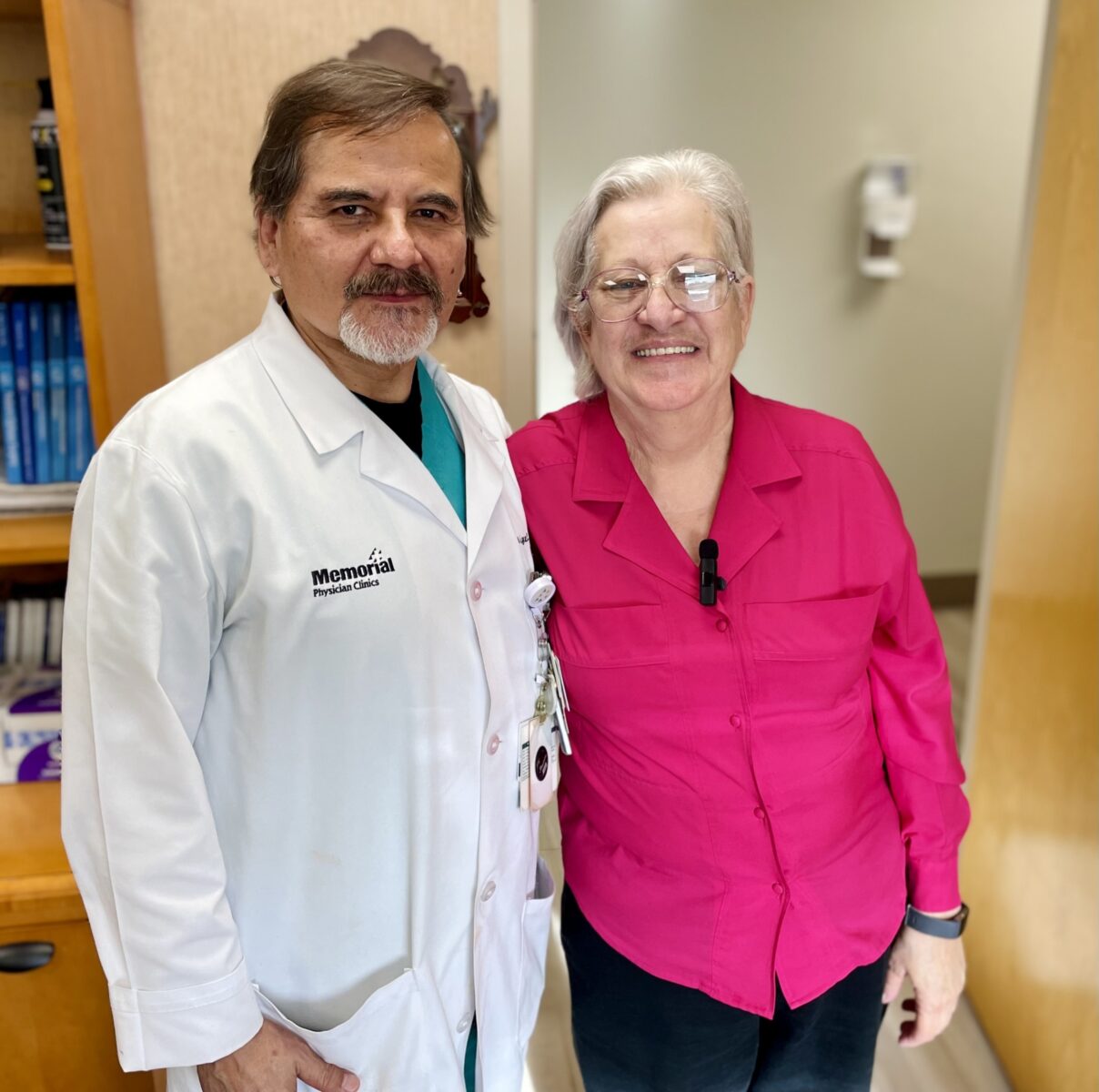Breaking Free: Triumph Over Trigeminal Neuralgia
Sherri has a bubbly and nurturing personality, but these qualities were dimmed for years due to a crippling pain that she continued to receive misdiagnoses for. A chance visit to a Memorial clinic for COVID-19 led to her finally getting answers for the pain that kept her from sleeping, eating, drinking, and even hugging her grandkids comfortably. After a decade of pain, she finally received the correct diagnosis – trigeminal neuralgia.

What is Trigeminal Neuralgia?
Dr. Miguel Melgar, a renowned, board-certified neurological surgeon, explains that trigeminal neuralgia is a condition characterized by excruciating pain on one side of the face. Typically, this condition impacts the elderly population. It strikes unexpectedly, like a lightning bolt in an otherwise ordinary day, leaving the sufferer reeling from its intensity. “Patients may be doing normal things,” Dr. Melgar elaborates, “but then a severe pain comes, followed by a continuous burning sensation that lingers for hours or even days.”
For Sherri, the pain was a constant companion, an unwelcome guest that intruded upon every moment of her life. “It was like an ice pick or an electric shock,” she recalls. “It felt like an open flame was burning my face.”
The Root of the Pain
The cause of this relentless pain lies deep within the intricate network of nerves in the face. Dr. Melgar explains, “The trigeminal nerve, responsible for transmitting sensations on the face to the brain, is impacted. A blood vessel surrounding the nerve at its origin in the brainstem triggers a response with every heartbeat, leading to the debilitating pain experienced by patients.”
Sherri’s journey with trigeminal neuralgia spanned over a decade. “I dealt with it as best as I could,” she recalls. “But it reached a point where I couldn’t work, couldn’t sleep, couldn’t even do basic tasks like housework.”
Like many others, Sherri’s struggle with trigeminal neuralgia was a journey fraught with misdiagnoses and unrelenting pain. “Many doctors didn’t take the time to listen to my symptoms,” she shares. But then, by chance, she stopped into a Memorial Walk-In Clinic for her COVID-19 diagnosis. There, she met Family Medicine Specialist Dr. Kerry Scott. Dr. Scott, familiar with trigeminal neuralgia, recommended that she consult with a neurologist after considering her symptoms, which included the persistent pain. From there, she met with Neurologist Dr. Abha Mishra and Dr. Melgar.
Finding Relief
Dr. Melgar’s expertise offered Sherri a lifeline she desperately needed. With a surgical procedure tailored to address the root cause of her pain, Sherri found herself on the path to relief. “Just about instant relief,” she marvels. Surgery for trigeminal neuralgia requires significant expertise in microsurgery around the brainstem and other vital brain structures.
For the first time in years, she could hug her grandkids without fear of the pain. “My friends would call me to go out to dinner or meet for lunch and I never felt like going anywhere. And now I can have lunch with somebody, and I can actually get the spoon or fork in my mouth. Before, I had to grind up my food and drink it instead of chewing it. I felt like an embarrassment to myself and my friends.”
A Remarkable Recovery
Dr. Melgar emphasizes the importance of offering such procedures to the community. “Living with agonizing pain all day long is unbearable,” he asserts. The transformation witnessed in his patients is nothing short of remarkable, restoring not just physical comfort but also the joy of living. He adds, “It is very rewarding because you see people who are withdrawn, depressed, and they cannot socialize. This procedure is a dramatic life-changer, especially for the elderly population. They can travel and enjoy life. It’s one of the most rewarding operations I’ve done.”
Exceptional Care that Transforms
Sherri extends her gratitude to Dr. Melgar and his compassionate team. “They took the time to talk to me, to explain the risks and benefits,” she reflects. “I’m relieved that I’m not in so much pain anymore. I would wake up screaming and praying for pain relief.”
For Sherri, the surgery was not just a medical procedure; it was a catalyst for profound change. “I feel rested. I feel more energized. It’s been a hard journey, but now I have answers to my prayers.”
With the right expertise and support, trigeminal neuralgia can be conquered. Sherri’s story is a testament to the power of hope, resilience, and the transformative impact of compassionate care.
